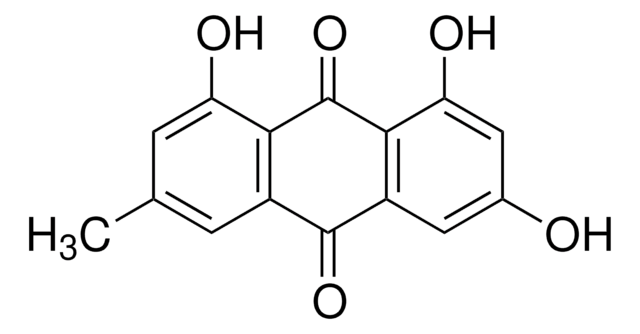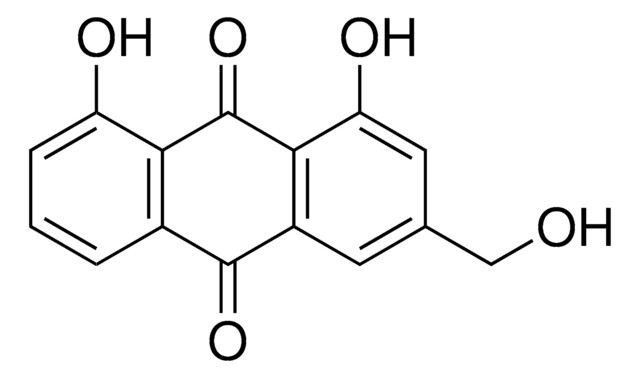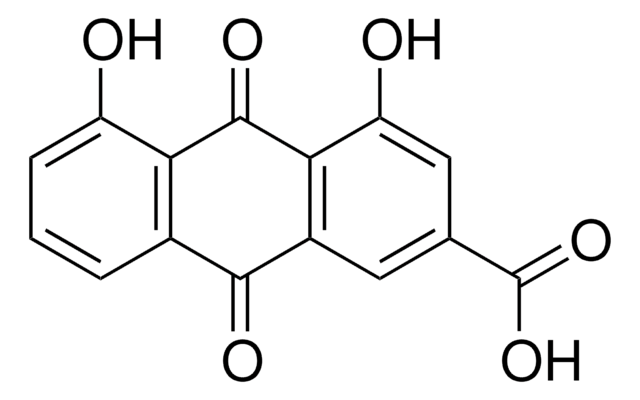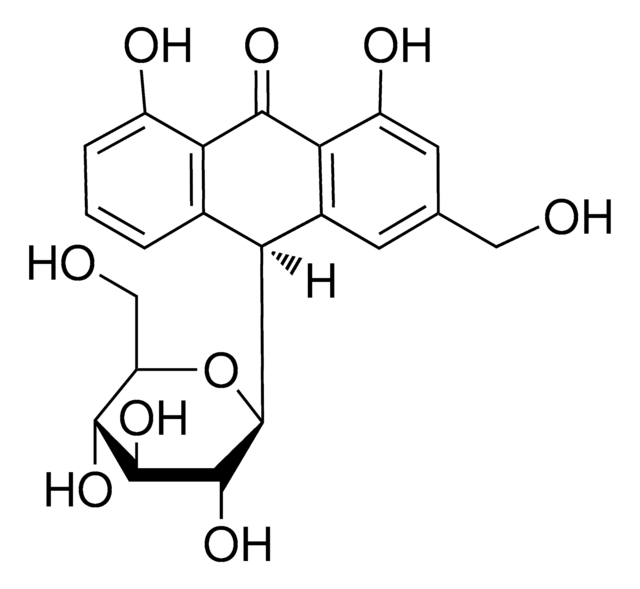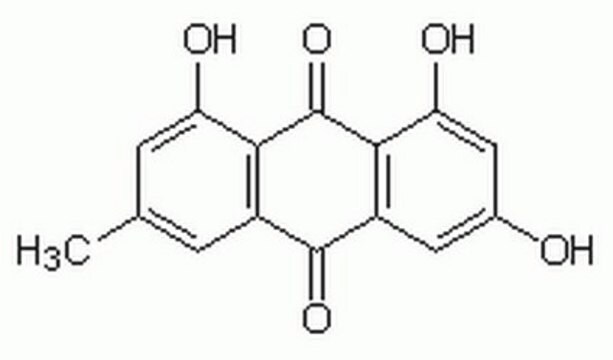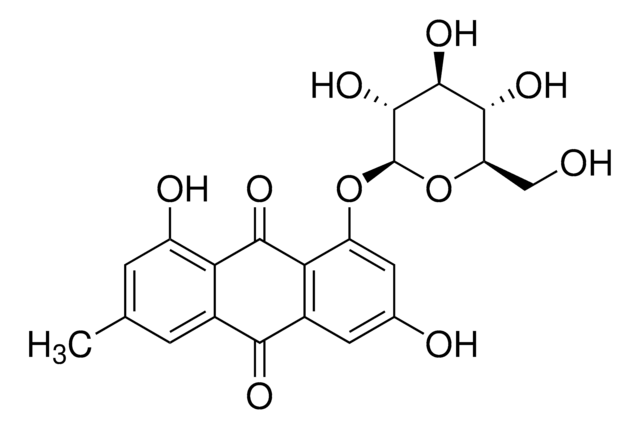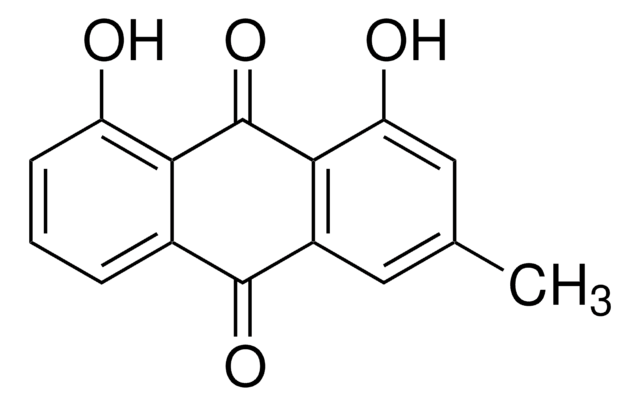A7687
Émodine d′aloès
≥95% (HPLC)
Synonyme(s) :
1,8-Dihydroxy 3-hydroxymethylanthraquinone, 1,8-Dihydroxy-3-(hydroxymethyl)anthraquinone, 3-Hydroxymethylchrysazine, Rhabarberone
About This Item
Produits recommandés
Source biologique
plant root (Rheum palmatum)
Pureté
≥95% (HPLC)
Forme
powder
Technique(s)
HPLC: suitable
Couleur
yellow to brown
Température de stockage
2-8°C
Chaîne SMILES
OCc1cc(O)c2C(=O)c3c(O)cccc3C(=O)c2c1
InChI
1S/C15H10O5/c16-6-7-4-9-13(11(18)5-7)15(20)12-8(14(9)19)2-1-3-10(12)17/h1-5,16-18H,6H2
Clé InChI
YDQWDHRMZQUTBA-UHFFFAOYSA-N
Vous recherchez des produits similaires ? Visite Guide de comparaison des produits
Description générale
Application
Actions biochimiques/physiologiques
Mention d'avertissement
Warning
Mentions de danger
Conseils de prudence
Classification des risques
Acute Tox. 4 Oral
Code de la classe de stockage
11 - Combustible Solids
Classe de danger pour l'eau (WGK)
WGK 1
Point d'éclair (°F)
Not applicable
Point d'éclair (°C)
Not applicable
Équipement de protection individuelle
dust mask type N95 (US), Eyeshields, Gloves
Certificats d'analyse (COA)
Recherchez un Certificats d'analyse (COA) en saisissant le numéro de lot du produit. Les numéros de lot figurent sur l'étiquette du produit après les mots "Lot" ou "Batch".
Déjà en possession de ce produit ?
Retrouvez la documentation relative aux produits que vous avez récemment achetés dans la Bibliothèque de documents.
Les clients ont également consulté
Notre équipe de scientifiques dispose d'une expérience dans tous les secteurs de la recherche, notamment en sciences de la vie, science des matériaux, synthèse chimique, chromatographie, analyse et dans de nombreux autres domaines..
Contacter notre Service technique